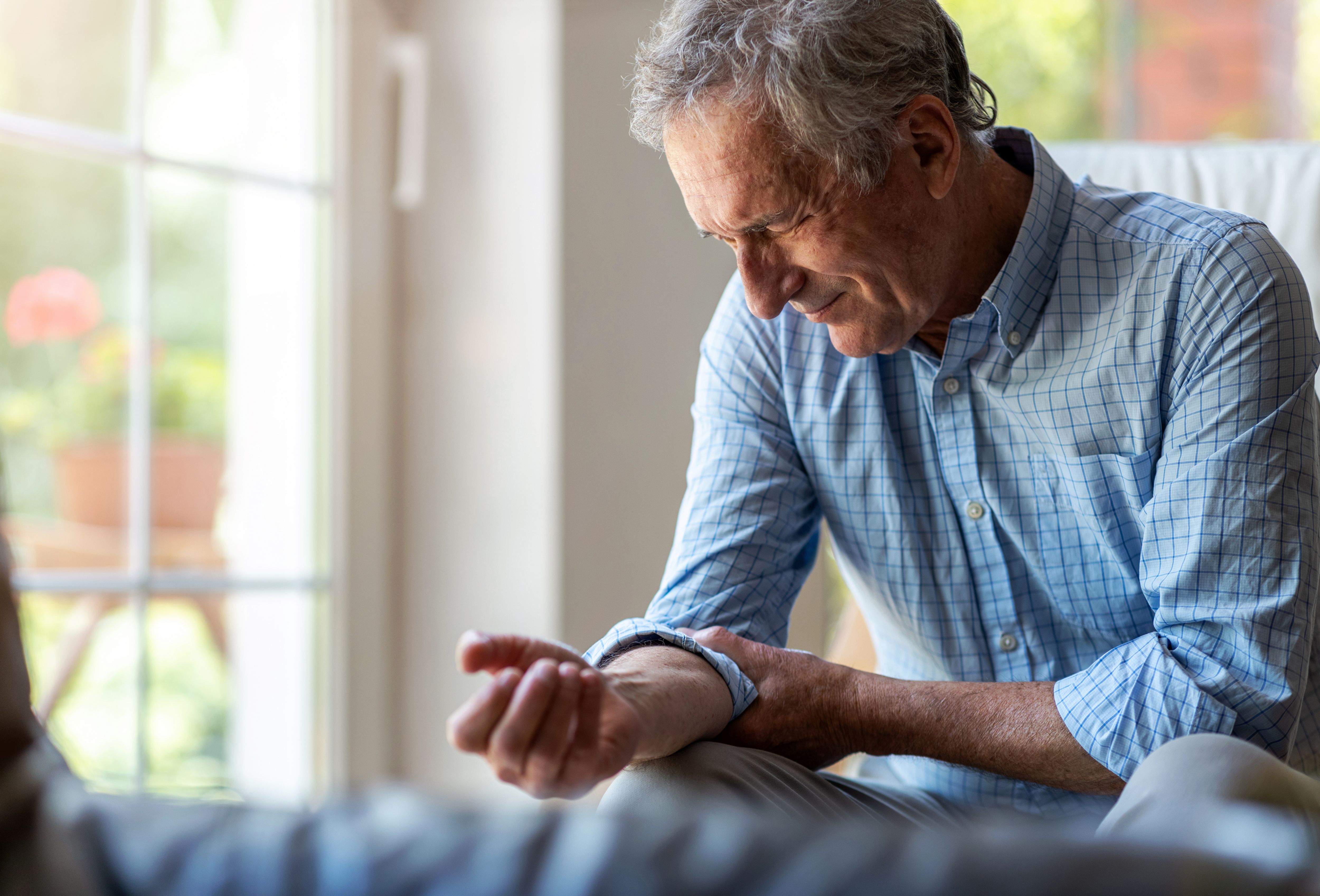The gut is a complicated, delicate part of the body that can influence overall health and wellness for years. When experiencing tummy troubles that may be tied to a chronic gut disorder, it’s easy to become discouraged when trying to seek relief from symptoms or find real solutions. Learning how to help digestion is the first step. You may face permanent lifestyle changes that include diet, medications, and emotional support to improve gut health.
Understanding Gut Disorders: IBS, IBD, and Diverticulitis Explained
Medically Reviewed Erin Young, MSN, RN

Similarities and differences between IBS, IBD, and diverticulitis
Irritable bowel syndrome (IBS), inflammatory bowel disease (IBD), and diverticulitis are distinct digestive disorders that can share some symptoms but have different causes and treatments. Navigating the differences can be confusing. For instance, what is the difference between IBS and IBD? Let’s explore these conditions in more detail to find the answers.
Irritable bowel syndrome (IBS): A functional disorder
IBS is a functional disorder, meaning the bowel appears structurally normal but doesn’t work properly. Common symptoms include gas, bloating, abdominal pain, alternating diarrhea and constipation.
Inflammatory bowel disease (IBD)
IBD includes Crohn’s disease and ulcerative colitis, both of which cause chronic inflammation in the gastrointestinal tract. Unlike IBS, IBD results in visible damage to the gut. Symptoms of IBD can include:
- Intestinal bleeding
- Cramping and abdominal pain
- Persistent diarrhea
- Weight loss due to malabsorption
The immune system mistakenly attacks the gut, leading to inflammation and tissue damage. The exact cause is still unknown, but genetic factors and immune system dysfunction are believed to play a role.
Diverticulitis: Pouch formation in the colon
Understanding the different diverticular disease can be confusing because they sound so much alike. Diverticulitis occurs when diverticula become inflamed or infected. This typically causes sudden, severe abdominal symptoms. Many people wonder if diverticulitis can be cured because the pain can be severe and sudden.
Diverticulosis, on the other hand, occurs when small pouches or sacs, called diverticula, develop in the colon wall. Generally, there is no pain or symptoms, and these pouches are discovered during a procedure like a colonoscopy.
What leads to inflammatory bowel diseases (IBD)
While the exact cause of IBD is unknown, several factors contribute to its development:
- Genetics: A family history of IBD increases the risk.
- Immune system dysfunction: The immune system may mistakenly attack the gut, leading to inflammation.
- Environmental factors: Diet, infections, and antibiotics use may influence the development of IBD, though research is ongoing.
Causes of diverticulitis
Several factors may contribute to diverticulosis and diverticulitis.
- Low fiber intake: A diet low in fiber can lead to constipation, which increases pressure in the colon and promotes pouch formation.
- Age: The risk increases with age, as the colon wall weakens over time.
- Genetics: Family history may play a role in the development of diverticular disease.
- Medications: Certain drugs, like NSAIDs and steroids, can increase the risk of diverticulitis.
- Unhealthy lifestyle: Lack of exercise, smoking, and obesity can increase the likelihood of developing diverticular disease.
Causes of IBS
It isn’t entirely clear what causes IBS, but according to the National Institute of Diabetes and Digestive and Kidney Diseases, experts believe it may be due to a combination of problems.
Brain-gut signal problems
Signaling problems between the brain and gut may cause symptoms of IBS. Also researchers have found that people with IBS have altered levels of neurotransmitters (chemicals in the body that send nerve signals) as well as gastrointestinal hormones.
Gastrointestinal motility problems
Motility, the movement of food through your GI tract may be too slow or fast, causing constipation or diarrhea.
Pain and food sensitivities
It’s common for people with IBS to have mental health problems such as panic disorder, anxiety, depression and post-traumatic stress disorder.
Genetics
It isn’t clear if IBS runs in families, but it does appear to be more common in people with family members who’ve had a history of GI problems.
Living with a gut disorder
Living with IBS can leave patients feeling frustrated or hopeless if the path for managing the disease isn’t clear and symptoms continue to affect daily living. Talk with family, caregivers, and doctors about which treatments may work best for your situation.
- Medications such as fiber supplements, laxatives, antidiarrheals, antispasmodics, and antidepressants.
- Probiotics can help restore gut microbiome balance.
- Cognitive-behavioral therapy (CBT) and stress-reduction techniques can help manage symptoms.
- Dietary changes like following a
low FODMAP diet or avoiding trigger foods like fatty, spicy foods and caffeine can be beneficial. This is an elimination diet that focuses on specific fermentable carbohydrates from which the name FODMAP derives.
Coping with IBD
IBD can be debilitating. When living with this condition, the goal is to control inflammation and induce remission through with anti-inflammatory drugs, surgery to remove damaged parts of the intestine, and nutritional and dietary support.
Treating diverticulitis
Treatment for diverticulitis depends on the severity. For mild cases, your doctor/physician might prescribe antibiotics and a liquid diet, and suggest that you rest as much as possible.
For more severe cases, hospitalization may be required. There, your doctor can administer intravenous (IV) antibiotics and monitor a fasting period. In severe cases, surgery may be required.
Making dietary changes
Diet plays a critical role in improving gut health. People living with disorders find it necessary to make dietary changes to live a healthier lifestyle and manage symptoms. Basic changes include:
- Fiber intake: For IBS, increasing fiber gradually can help manage symptoms. A high-fiber diet is especially important for preventing diverticulitis.
- Low FODMAP diet: This diet is recommended for seniors suffering from irritable bowel syndrome. This diet focuses on choosing foods or eliminating foods that may trigger or irritate the gut and includes a specific list of recommended foods to eat or avoid.
- Smaller meals: Eating smaller, more frequent meals can reduce digestive discomfort rather than eating two or three large meals during the day.
When to see a doctor
You might wonder when a seemingly average stomachache turns into something more serious. Here are some signs to keep an eye out for. If you experience any of the following, reach out to your doctor/physician right away to see if you might be dealing with a gut disorder:
- Significant changes in bowel habits
- Blood or mucus in stool
- Severe abdominal pain
- Unintentional weight loss
- Persistent heartburn
Diagnosing digestive disorders
To diagnose a digestive disorder, it’s important to visit your doctor regularly about ongoing symptoms or digestive problems. If you think you’re experiencing an ongoing problem and not an occasional sickness or bug, try keeping a log or record to show your doctor. Your doctor may need to review your medical history, schedule diagnostic tests, or perform exams to further diagnose the exact problem. Here are some possible tests your doctor may suggest:
- A CT scan is used to diagnose diverticulitis and other gastrointestinal issues. This is a painless procedure that involves lying on a table while a machine scans your body.
- Blood and stool tests can help find inflammation, infection, or anemia.
- A colonoscopy helps examine the colon for signs of IBD, cancer, or diverticulitis. This outpatient procedure requires overnight preparation and sedation.
- A barium enema provides x-ray images of the colon and is another type of screening procedure.
IBS, IBD, and diverticulitis may be lifelong conditions, but you can live comfortably and regain an active, healthy lifestyle while managing a gut disorder with the help of your doctor and healthcare providers.
Sources
- "Low FODMAP Diet." Cleveland Clinic,
https://my.clevelandclinic.org/health/treatments/22466-low-fodmap-diet . - "Inflammatory Bowel Disease (IBD)." Mayo Clinic,
https://www.mayoclinic.org/diseases-conditions/inflammatory-bowel-disease/diagnosis-treatment/drc-20353320 . - "Irritable Bowel Syndrome (IBS)." WebMD,
https://www.webmd.com/ibs/digestive-diseases-irritable-bowel-syndrome . - "Is It IBS or IBD?" Cedars-Sinai Blog,
https://www.cedars-sinai.org/blog/is-it-ibs-or-ibd.html .



